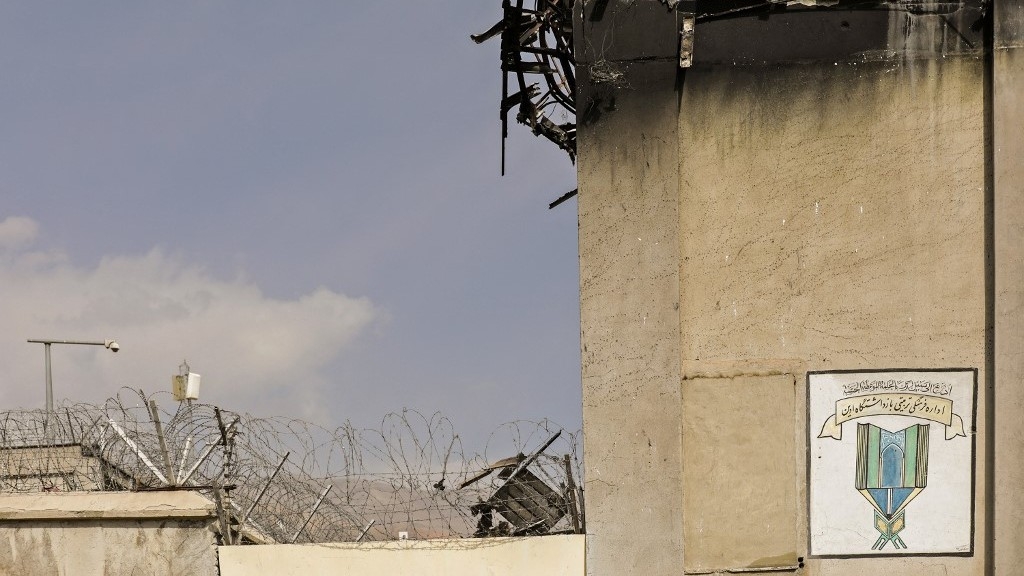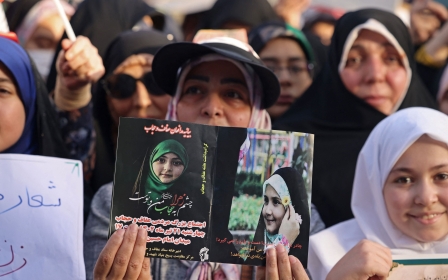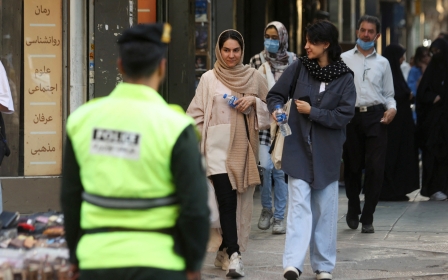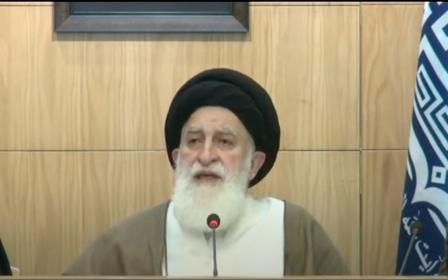US reaches deal with Iran on prisoner swap and release of $6bn frozen oil revenue

The United States reached an agreement with Iran on Thursday to release several imprisoned Iranians and grant access to $6bn in frozen Iranian oil revenue in exchange for the release of five jailed Americans.
US National Security Council spokesperson Adrienne Watson said in a statement that five Americans had been moved from Tehran's Evin prison to house arrest and negotiations for their release were continuing.
"We have received confirmation that Iran has released from prison five Americans who were unjustly detained and has placed them on house arrest," Watson said.
"We will not rest until they are all back home in the United States," she added, saying that the White House would have little more to say because "negotiations for their eventual release remain ongoing and are delicate."
Iran's mission to the United Nations confirmed the transfers and said they were part of a US-Iranian prisoner exchange deal.
Stay informed with MEE's newsletters
Sign up to get the latest alerts, insights and analysis, starting with Turkey Unpacked
"Under the deal mediated by a third country, five Iranians jailed in the United States will be released and Iran's frozen funds in South Korea will be unblocked and transferred to Qatar," the mission said, according to state news agency IRNA.
Iran's semi-official Tasnim news agency said $6bn of Iran's money in South Korea would first be converted into Euros and then sent to an account in Qatar that Iran could access.
The Reuters news agency reported that the funds could only be used for humanitarian purposes such as buying food or medicine.
In June, Middle East Eye first reported that relations between Washington and Tehran were progressing and the two sides agreed to an interim nuclear deal where the Islamic Republic would not enrich uranium to 60 percent and would cooperate with the International Atomic Energy Agency (IAEA) for the monitoring and verification of its nuclear programme.
In exchange, Tehran would be allowed to export up to a million barrels of oil per day and gain access to its income and other frozen funds abroad. Those funds would have to be exclusively used to purchase a range of essential items, including food and medication.
Days later, Iran's Supreme Leader Ayatollah Khamenei said he could endorse an agreement with the West if Iran's nuclear infrastructure was kept intact. Khamenei also said that Iran should maintain at least some cooperation with international nuclear inspectors.
However, sources later told MEE that the US insisted that further progress could not be made unless an agreement was reached over the issue of US-Iranian dual national prisoners.
Republican opposition
Thursday's announcement is set to attract criticism from US Republicans who are overwhelmingly against the idea of a return to the 2015 Iran nuclear deal.
US House Foreign Affairs Committee Chair and vocal Republican Mike McCaul told the Biden administration in June that discussions with Iran over a return to the Iran nuclear deal would be meaningless unless the White House had a mandate from Congress.
"I urge the Administration to remember that US law requires that any agreement, arrangement, or understanding with Iran needs to be submitted to Congress," McCaul said.
According to Thursday's announcement, the Iranian Americans allowed to leave prison include businessmen Siamak Namazi, and Emad Shargi, as well as environmentalist Morad Tahbaz, who also has British nationality.
The identity of the fourth American released from prison remains undisclosed, as does that of the fifth individual who was previously under house arrest.
It is unclear when the five will be allowed to leave Iran, although Reuters, citing an unnamed source, suggested September was a possible time frame.
Namazi was arrested in October 2015 on charges of trying to overthrow the state, accusations that he denies. He has been in Iranian custody for over seven years. His father, Baquer, was granted permission to depart Iran in October for medical care after facing comparable charges, which Washington also refuted.
Tahbaz, detained in 2018, received a 10-year prison term for "assembly and collusion against Iran's national security" and for alleged espionage on behalf of the US.
Similarly, Shargi was sentenced to a decade behind bars in 2020 on spying charges.
Earlier on Thursday, the pro-government Khorasan Daily reported that a woman holding dual Iranian and American citizenship was arrested on accusations of espionage.
The daily did not disclose the individual's identity but noted that she "had worked with non-governmental organisations in Afghanistan". So far officials from the United States have not issued any response to these claims.
Middle East Eye delivers independent and unrivalled coverage and analysis of the Middle East, North Africa and beyond. To learn more about republishing this content and the associated fees, please fill out this form. More about MEE can be found here.






